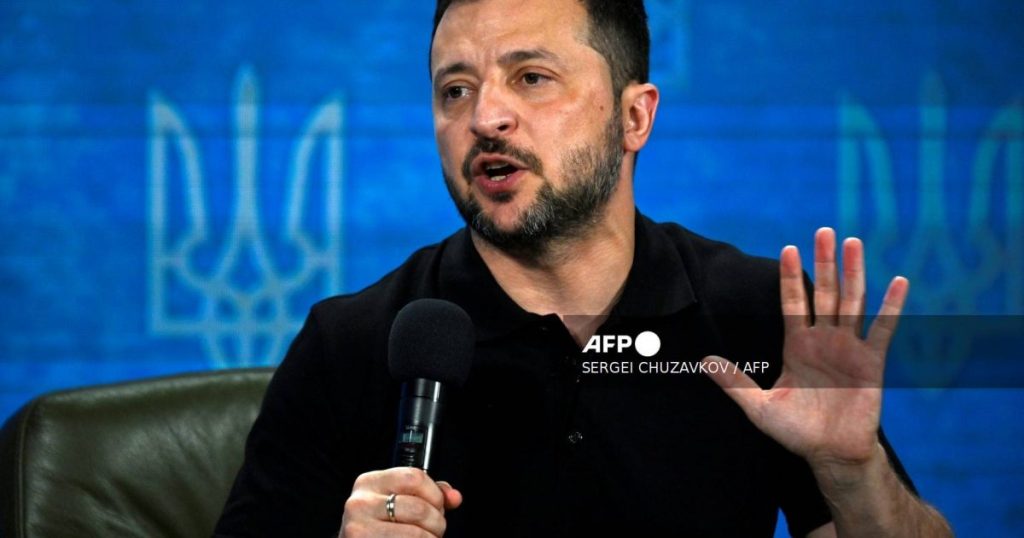Paragraph 1: Zelensky’s Statement and Initial Reactions
On May 11, 2025, Ukrainian President Volodymyr Zelensky expressed his belief that Russia was contemplating an end to the ongoing war in Ukraine. He highlighted this as a "positive sign," acknowledging the global anticipation for such a development. Zelensky emphasized the crucial first step of any genuine peace process: a ceasefire. This statement, disseminated through social media, immediately garnered attention worldwide, sparking cautious optimism and speculation about the potential trajectory of the conflict. The international community, weary of the protracted war’s devastating consequences, viewed Zelensky’s words as a potential turning point, albeit with a degree of measured skepticism given the complex and volatile nature of the Russo-Ukrainian relationship.
Paragraph 2: Contextualizing the Conflict’s History
The war in Ukraine, erupting in [insert start date of conflict, if readily available, or refer to it as a "prior date"], has been a protracted and brutal affair, marked by significant human suffering and geopolitical instability. [Elaborate on the key events leading up to the war and major developments during the conflict, including key battles, territorial changes, and international involvement. Provide context on the reasons behind the conflict, including historical grievances, geopolitical factors, and the involvement of other nations. This section should provide a detailed backdrop against which Zelensky’s statement can be understood.]
Paragraph 3: Analyzing Russia’s Potential Motivations
Zelensky’s assertion that Russia was considering ending the war prompted widespread analysis regarding Moscow’s potential motivations. Several factors could be contributing to such a shift in thinking. [Discuss potential reasons for Russia’s possible change of heart, such as: military setbacks, economic sanctions and their impact, domestic pressure within Russia, changing geopolitical dynamics including potential shifts in alliances or international pressure, potential war fatigue among the Russian populace, or a reassessment of strategic objectives.] Understanding these potential motivations is crucial for assessing the credibility of a potential peace process and forecasting the future of the conflict.
Paragraph 4: International Response and Diplomatic Efforts
Zelensky’s statement was met with a mix of hope and cautious optimism from the international community. Various world leaders and international organizations reacted to the news, [mentioning specific responses or statements, if any are readily available]. The potential for a ceasefire and peace negotiations reinvigorated diplomatic efforts, with various countries and international bodies expressing their willingness to facilitate talks between Ukraine and Russia. [Describe any ongoing or planned diplomatic initiatives, mentioning key players involved and their stated objectives. Discuss prior diplomatic attempts, successes, and failures, as they provide context for current efforts.]
Paragraph 5: Challenges and Obstacles to Peace
Despite the positive signal from Zelensky’s statement, significant obstacles remain on the path to peace. Deep-seated mistrust between Ukraine and Russia, coupled with complex political and territorial disputes, presents major hurdles. [Elaborate on the specific challenges, including: defining the terms of a ceasefire, addressing territorial disputes, ensuring the safety and security of Ukrainian citizens, dealing with war crimes accountability, negotiating the future status of disputed territories, and managing the humanitarian crisis.] Overcoming these challenges will require sustained diplomatic efforts, compromise from both sides, and the active involvement of the international community.
Paragraph 6: Looking Ahead: Prospects for Peace and Future Scenarios
The future of the conflict in Ukraine remains uncertain. While Zelensky’s statement offered a glimmer of hope, the path to a lasting peace is fraught with difficulties. Several potential scenarios are possible: [Outline potential future scenarios, including: a successful negotiation leading to a ceasefire and peace agreement, a prolonged stalemate with intermittent fighting, a further escalation of the conflict, or a negotiated settlement that fails to address core issues and ultimately unravels.] The success of any peace process will depend on the willingness of both sides to engage in good faith negotiations, make difficult compromises, and prioritize a peaceful resolution for the benefit of their people and the stability of the region. The international community will play a critical role in supporting and facilitating this process, ensuring accountability, and providing humanitarian assistance to those affected by the conflict.


